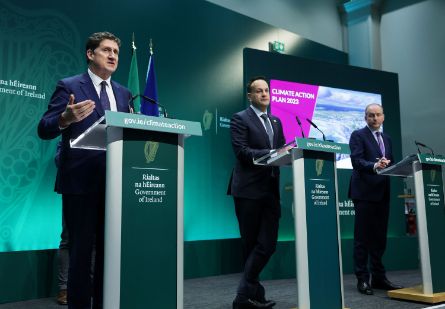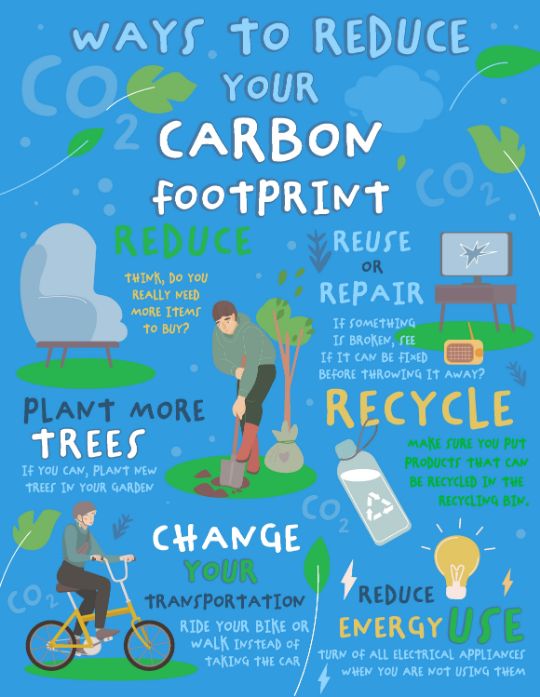During Earth Day week, the EU organized a conference to discuss its climate laws aimed at reducing emissions. Simultaneously, a US-hosted summit took place on Thursday and Friday of that week, during which the White House urged global leaders to commit to more stringent measures to safeguard the planet. These developments have substantial implications for Ireland and its pursuit of a net-zero future by 2050, influencing both work and daily life in the country.
On Thursday, April 22, Ireland took a significant step by enacting its climate action plan into law, a move met with praise from Tánaiste Leo Varadkar. He commended Ireland as "one of the most ambitious countries in the world on climate." Varadkar also highlighted the pivotal role that businesses will play in Ireland's decarbonization efforts, emphasizing that this presents "an enormous opportunity to create new jobs and grow companies."
This development underscores Ireland's commitment to addressing climate change and aligning its policies with global efforts to combat the climate crisis. It acknowledges the importance of both government action and private sector engagement in achieving ambitious climate goals while simultaneously promoting economic growth and job creation.

The law sets forth an ambitious target of a 51% reduction in emissions by 2030 and aims for net-zero emissions by 2050. It introduces a crucial legal requirement, mandating the government to adopt a series of economy-wide five-year carbon budgets on a rolling 15-year basis. Minister for Transport, Climate, and Environment Eamon Ryan expressed his support for the law, emphasizing that Ireland is determined not to lag behind in addressing climate change. He also noted that policies would be implemented if the country falls short in specific sectors, ensuring alignment with its emission reduction projections.
However, there are dissenting voices regarding these climate laws. Prominent climate experts have written to the government, seeking clarity on certain aspects of the bill, which they find to be "not scientifically well grounded" and "entirely lacking in legal certainty." Climate scientist Prof John Sweeney of Maynooth University, along with a team of experts and environmental law specialists, has expressed concerns about the ambiguity surrounding the substantive elements of how greenhouse gas reductions will be managed. They believe that the current wording of the law is open to challenge and needs clarification to ensure its effectiveness.
Concerns from rural representatives in the government highlight the potential challenges and impacts of the bill on rural Ireland, which constitutes about 35% of the population. Rural areas in Ireland often rely on carbon-intensive industries such as fossil fuel generation and farming. Some members of the government have voiced apprehension, characterizing the bill as potentially detrimental to rural communities and asserting that it was rushed and poorly conceived. Opposition members have emphasized the need to protect the most vulnerable segments of society from bearing the costs of climate action, especially as these individuals are the least responsible for climate change and the most susceptible to its effects.
The proposed emissions reduction target for 2030 is indeed ambitious, requiring significant efforts across various sectors. While some sectors will pose greater challenges and demand substantial investment and innovation, the energy sector has the potential to play a pivotal role in helping businesses and the country as a whole reduce emissions without incurring excessive financial burdens. Ireland already has energy infrastructure in place that can be scaled up to make a meaningful difference. Additionally, policies incentivizing electric cars, home heating upgrades, and renewable electricity adoption are available but need to be massively expanded, accompanied by new infrastructure to support these initiatives.
It's important to acknowledge that Ireland's progress in renewable energy development has been somewhat slow, and there is pressure to accelerate efforts to meet the 2030 target. Achieving this goal will likely require unprecedented actions in terms of behavioral change, technological advancements, and financial measures. These changes must be implemented in the near future to ensure that Ireland remains on track to fulfill its ambitious climate commitments.

© 2022 Cue Power Limited. All rights reserved.